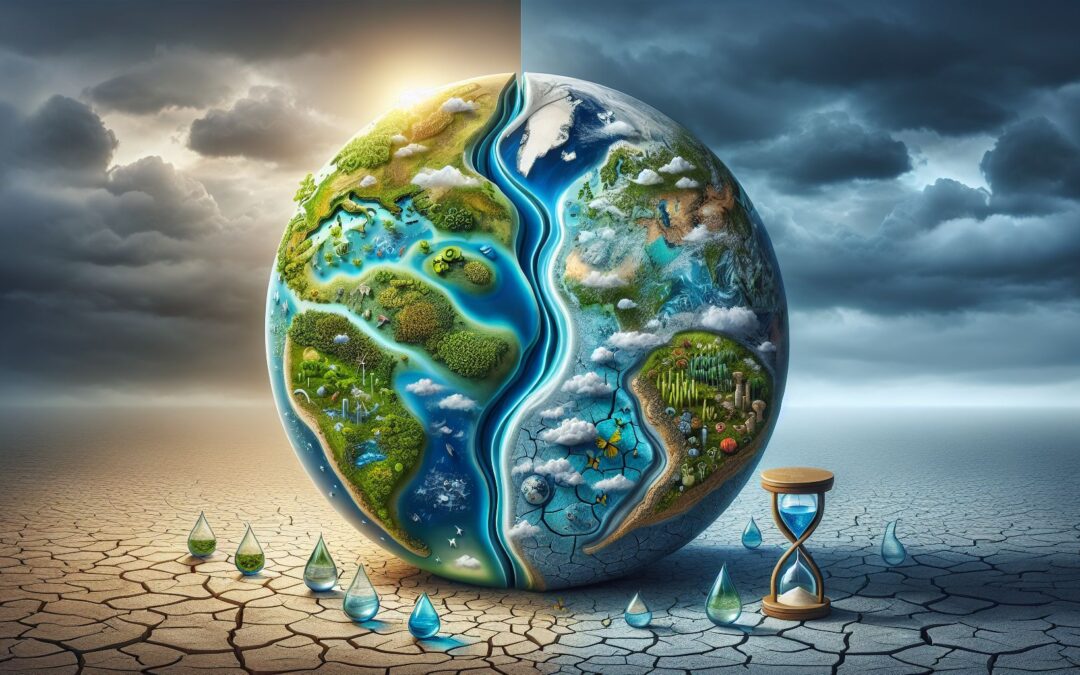Groundwater depletion constitutes one of the most overlooked aspects of the global water crisis. In a world increasingly plagued by water stress and scarcity, groundwater depletion emerges as a significant and silent threat, worsening the global water security situation.
What is Groundwater?
Groundwater, as the name suggests, is the fresh water found beneath the Earth’s surface, typically in aquifers, which are porous rocks that can contain or transmit groundwater. It plays a vital role in sustaining rivers, lakes, and ecosystems and ensuring the availability of fresh water for human consumption and agricultural activities.
Current State of Groundwater Depletion
According to the United Nations, over 2 billion people across the world depend on groundwater for drinking and irrigation[^1^]. An alarming rate of depletion has been observed in many parts of the world in recent decades, largely due to over-extraction for irrigation, urban development, and industrial use. The issue is compounded by factors like population growth and climate change, which exacerbate water scarcity and necessitate further groundwater use.
Groundwater Depletion’s Impact on Aquatic Ecosystems
Apart from human water supply, many aquatic ecosystems depend on groundwater for their survival. Groundwater feeds into lakes, wetlands, streams, and rivers, supporting both aquatic and terrestrial ecosystems. When groundwater is depleted, these ecosystems often experience drastic changes that can threaten biodiversity. Changes in the groundwater level can lead to reduced surface water, diminishing the quality and quantity of aquatic habitats.
Groundwater Over-Extraction, Quality, and Contamination
A significant contributor to groundwater depletion is over-extraction, mainly due to agricultural, municipal, and industrial activities. Over-extraction can lead to land subsidence, the sinking of the Earth’s surface, which poses significant risks to infrastructure and can lead to increased flooding.
Another essential consideration regarding groundwater is contamination. Natural contaminants can enter groundwater from the soil and rock surrounding aquifers. Moreover, human activities such as agriculture, waste disposal, and industrial processes can pollute groundwater with harmful substances. Contaminated groundwater is hazardous for consumption and can have severe health repercussions.
The Socioeconomic Impact of Groundwater Depletion
From an economic perspective, the cost of pumping water increases as groundwater levels fall, affecting small-scale farmers and rural communities who rely on wells for their water supply. Furthermore, the depletion of groundwater can lead to a lack of availability of clean water necessary for farming and livestock, critically impacting agricultural produce and increasing food insecurity.
Consequentially, the social implications are catastrophic, particularly for vulnerable groups. Lack of access to water can exacerbate poverty, lead to displacement of people, and increase the risk of conflict over scarce resources.
Mitigating Groundwater Depletion: Policies and Management Practices
Addressing groundwater depletion requires effective policies, sustainable management practices, and improved public awareness about groundwater conservation. Governments need to implement comprehensive water policies that include restrictions on over-extraction, encourage water conservation practices, invest in water-efficient technologies, and robust mechanisms for monitoring and enforcement.
Furthermore, there’s a need for stronger cooperation on an international level, particularly in regions where groundwater resources cross national borders. The exchange of information, best practices, and technological advancements can go a long way in managing these shared resources sustainably.
The Way Forward
In conclusion, addressing groundwater depletion is a critical aspect of ensuring global water security. By understanding the causes, impacts, and potential mitigation strategies, we can contribute to water conservation efforts and safeguard this essential resource for future generations. While the journey ahead presents significant challenges, there is a growing global recognition of the issue, grass-root level efforts, and technological advances that give hope for a sustainable future for our water resources.
[^1^]: “Groundwater”, United Nations, https://www.unwater.org/water-facts/groundwater/
[^2^]: “Groundwater depletion”, US Geological Survey, https://www.usgs.gov/special-topic/water-science-school/science/groundwater-depletion?qt-science_center_objects=0#qt-science_center_objects

